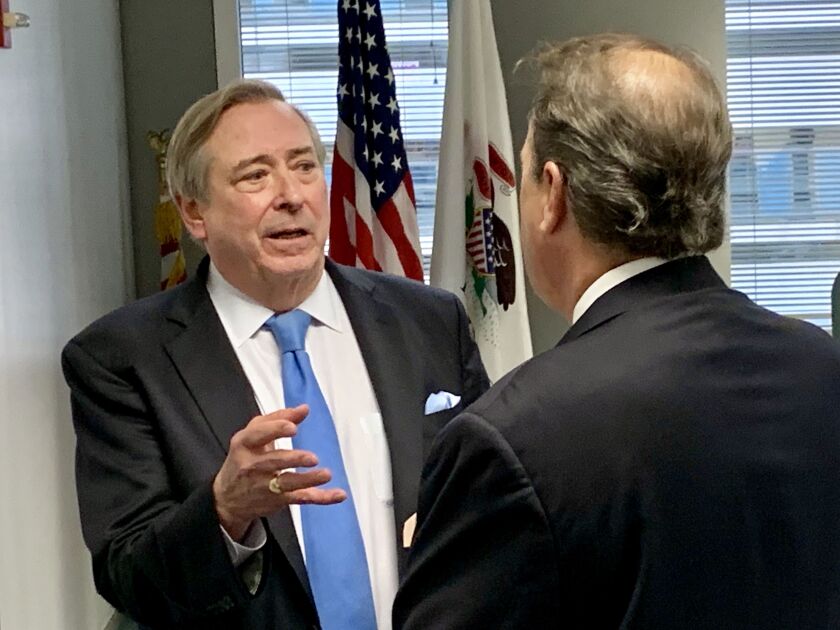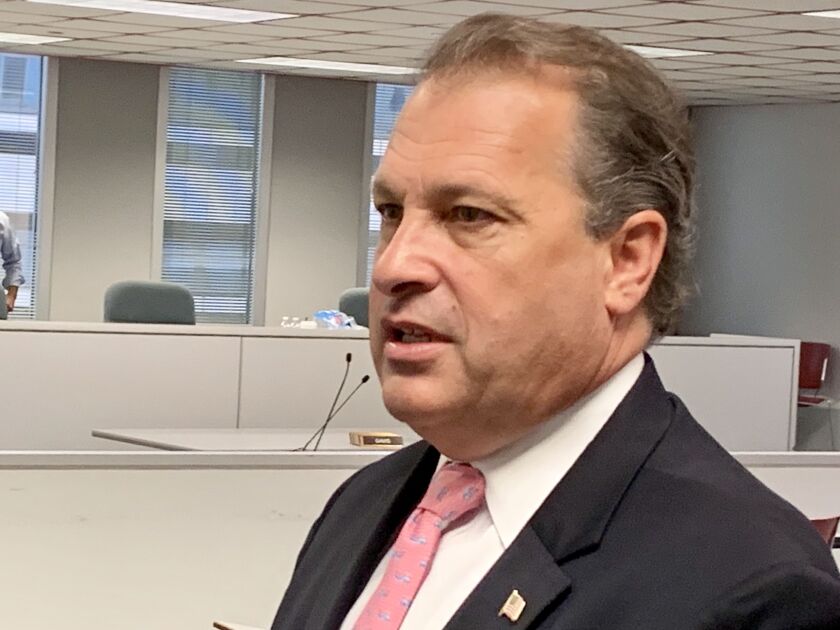Weeks after the stunning announcement that the corporate owners of Arlington International Racecourse won’t pursue a newly authorized casino license, state horse racing regulators on Tuesday reamed the president of the suburban track for passing on the gambling jackpot that had long been sought as a financial lifesaver for the struggling industry.
Churchill Downs Inc. last month blamed high taxes, a saturated gambling market and required contributions to a state thoroughbred purse fund as reasons not to invest in up to 1,200 slots and table games allowed at Arlington under the state’s new gambling expansion law.
Illinois Racing Board commissioner Thomas McCauley called that “nonsense.”
“The solution is already there. And Churchill rejected that solution,” McCauley said as he and fellow commissioners grilled Arlington president Tony Petrillo for an hour during a Racing Board meeting at the Thompson Center.
McCauley chastised the company for lacking “any regard for social responsibility whatsoever,” echoing industry advocates who said they were blindsided by the decision last month that they say snubs thousands of workers after what should have been a legislative win.
“As we all know, it’ll deprive workers. Who knows how many jobs will not be available because of that decision?” McCauley said.
He suggested Churchill is trying to gain leverage over Springfield lawmakers in negotiations for more a more favorable tax structure during the fall veto session — and that the company is seeking to protect their other major Illinois gambling operation: Rivers Casino in Des Plaines, the highest-grossing casino in Illinois.
The state’s other two existing racetracks, Hawthorne Race Course in Stickney and downstate Fairmount Park, have both applied for casino licenses.
Petrillo and representatives of the other tracks — including a new Tinley Park “racino” proposed by Hawthorne general manager Tim Carey and real estate developer Rick Heidner — appeared before the board Tuesday seeking approval for 2020 licenses and racing dates.
But the board opted to delay their vote on the licenses and dates for one week, instead passing a resolution to give Churchill time “to duly discern whether to maintain its current position going forward” and “reject the very activity it has pleaded for for so many years” — and to decide if it “really wants to signal to the world at once and for all it’s only a gaming software company, and no longer a horse racing enterprise,” McCauley said.
Petrillo said he hasn’t been involved in higher-level Churchill discussions. He toed the company line, citing “exorbitant” licensing fees “and the incredible amount of infrastructure that’s required to support racing at Arlington,” which he says scrapes by with a profit margin of just 3.6% as is.
“We’re not on a level playing field,” Petrillo said, comparing their situation to that of the Chicago casino licensing process, which was recently kicked back to the General Assembly by the Illinois Gaming Board.
“Something is needed in order to help Chicago. Well, something is needed in order to help Arlington at this juncture to get to a more level playing field,” he said.
McCauley shot that down that claim, saying state lawmakers wouldn’t “be viced by anybody, much less horse racing, which took 20 years to get what they wanted.”
Churchill has said it will apply for a sports betting license — which Petrillo said will allow Arlington “to be sustainable for more years to come” — while otherwise exploring “longer-term alternatives.” They’ve refused to commit to live horse racing beyond 2021 and suggested they could move their racing license, a threat flatly rejected by Racing Board commissioners.
“I’ve never read a more preposterous statement in my life,” McCauley said. “Does Churchill think that it owns this license? Because if they do, I’d encourage you to call them up and let them know that the state of Illinois owns that license, and we as the agents of the state of Illinois have the authority and responsibility to grant a privilege to those who earn it.”
The Racing Board meets again Sept. 24.








